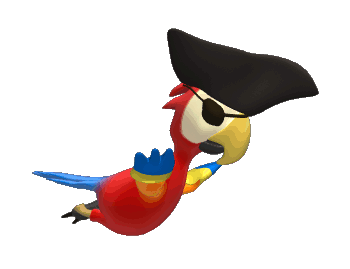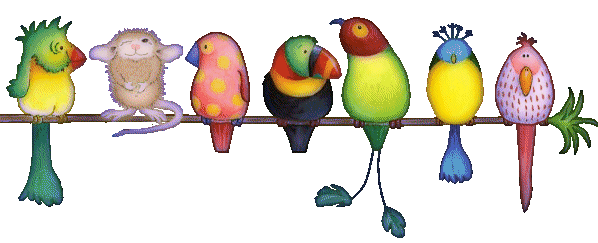
Nobody knows why but humans talk. Some say that we do it thanks to the birds that were the first sounds that Homo Sapiens could imitate. But like the birds in the recesses of our species, nature propitiated many sounds to imitate like the noise of the water, the storms or perhaps the breezes in the mountains. The howl or meow of the animals and even the glute of the fish can not be ruled out.
But students of communication believe that talking is a miracle of our condition of human nature; and is mainly associated with sounds that birds emit. Hence, each region of the planet has disseminated hundreds and thousands of languages as a result of the sounds produced by the birds of those places. This theoretical explanation of communication, sometimes has its cobwebs because with the migration of birds many of our languages should have some resemblance, rather than variants in its complex development over time is known as phonological tree.
In recent decades some scientists managed to build a language that claims to be universal that can become a second mother tongue and that does not sacrifice the native language over another that wants to position itself as Universal as English. Although it is a fascinating topic I will not debate about this language and its nuances I will leave your link for those who want to know more about it or perhaps learn it.
https://es.wikipedia.org/wiki/Esperanto
But I only know that if Esperanto is the language of some bird, it would have to be the bird with the most beautiful trill. A nightingale, a liberal (Venezuelan bird in danger of extinction) or who knows which one; that is somewhere in this world. Every day a new stream of language is formed. As social or ethnic circumstances. The language or language has proposed an irreverent phrase that challenges Esperanto and that has been marketed "here is spoken ..."

....To be continued
https://steemit.com/@mak78
Downvoting a post can decrease pending rewards and make it less visible. Common reasons:
Submit
Cxu vi mem parolas esperanton? Se jes, tiam mi volonte sekvos vin.
Downvoting a post can decrease pending rewards and make it less visible. Common reasons:
Submit
Amiko, dankon pro komenti post tiom da jaroj, ke mi forgesis ĉi tiun bonegan afiŝon. Mi ne parolas Esperanton, sed mi ĉiam fascinis la ideon, ke ĝi ekzistas kaj multaj jam konsentis.
Downvoting a post can decrease pending rewards and make it less visible. Common reasons:
Submit
Neniu scias kial, sed homoj parolas. Iuj diras, ke ni faras ĝin danke al la birdoj, kiuj estis la unuaj sonoj, kiujn Homo Sapiens povis imiti. Sed kiel la birdoj en la recesioj de nia specio, la naturo kaŭzis imitadon de multaj sonoj kiel akvo-bruo, ŝtormoj aŭ eble la venteto en la montoj. Vi ne povas forĵeti la grumblojn aŭ meŝadon de bestoj kaj eĉ la dorsojn de fiŝoj.
Sed studentoj pri komunikado kredas, ke paroli estas miraklo de nia kondiĉo de homa naturo; kaj ĝi ĉefe asocias kun la sonoj, kiujn elsendas la birdoj. Tial ĉiu regiono de la planedo disvastigis centojn kaj milojn da lingvoj rezulte de la sonoj produktitaj de la birdoj de tiuj lokoj.
Ĉi tiu teoria klarigo pri komunikado foje havas siajn kobajojn ĉar kun la migrado de birdoj multaj el niaj lingvoj havus iom da simileco, anstataŭ variantoj en sia kompleksa evoluo laŭlonge de la tempo ĝi estas konata kiel fonologia arbo.
En la lastaj jardekoj, iuj sciencistoj sukcesis konstrui lingvon, kiu asertas esti universala, kiu povas fariĝi dua gepatra lingvo kaj ne oferas la denaskan lingvon por alia, kiu volas poziciigi sin tiel universala kiel la angla. Kvankam ĝi estas fascina temo, mi ne diskutos ĉi tiun lingvon kaj ĝiajn nuancojn, mi lasos vian ligon por tiuj, kiuj volas scii pli pri ĝi aŭ eble lerni ĝin.
https://es.wikipedia.org/wiki/Esperanto
Sed mi scias nur, ke se Esperanto estas la lingvo de iu birdo, ĝi devus esti la birdo kun la plej bela trilo. Nightingale, liberalulo (endanĝerigita venezuela birdo) aŭ kiu scias kiu; Tio estas ie en ĉi tiu mondo. Ĉiutage formiĝas nova lingva fluo. Kiel sociaj aŭ etnaj cirkonstancoj.
La lingvo aŭ lingvo proponis nereveran frazon, kiu defias Esperanton kaj estis surmerkatigita "ĉi tie ni parolas ..."
Downvoting a post can decrease pending rewards and make it less visible. Common reasons:
Submit
dankon por via traduko!
Downvoting a post can decrease pending rewards and make it less visible. Common reasons:
Submit